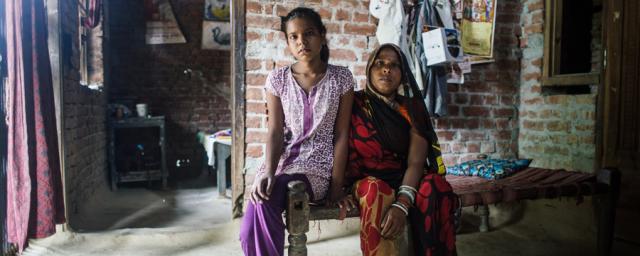
Corporate tax dodging is fuelling the inequality crisis, widening the gap between rich and poor. When companies dodge tax, it is the poorest in society, especially women and girls, who suffer the most as governments seek to balance their budgets by cutting essential services and raising other forms of tax.
Pfizer, Merck & Co (MSD), Johnson & Johnson, and Abbott are among the world’s biggest pharmaceutical companies. Their global revenues reached $1.8 trillion in the 10 years from 2006 to 2015. Yet, instead of paying their fair share of tax, they are depriving governments of billions of dollars that could be invested in healthcare. They are overpricing essential medicines, putting them out of the reach of poor people. And they are using their power and influence to torpedo any attempt to cut the cost of drugs and police their tax practices.We are all customers of Johnson & Johnson, Pfizer, Merck and Abbott. They need us to buy their products. If we speak out, they will have to listen.
Join us and demand that drug companies pay their fair share of taxes and make medicines affordable.
3.8 billion lost to tax dodging: what could the money fund?
Across 16 countries, Merck & Co, Pfizer, Johnson & Johnson, and Abbott appear to be dodging an estimated $3.8 billion in tax per year, including an estimated $112 million per year of tax in seven developing countries: Thailand, India, Ecuador, Colombia, Pakistan, Peru and Chile.
If these governments invested this money in healthcare...
it would be enough to:
- Pay for 10 million girls to be vaccinated against the virus that causes cervical cancer – one of the deadliest forms of cancer that kills one woman every two minutes across the globe, with nearly 9 of 10 these deaths in developing countries.
- Buy pneumonia vaccines for nearly nine million children. Pneumonia kills one million children worldwide each year and is the leading cause of mortality in children under five.
- Provide Japanese Encephalitis vaccines and bed-nets for every child born in the whole of India in one year. Japanese Encephalitis is a mosquito-borne disease which has a high fatality rate, especially for children under 15.
Your voice counts
Drug companies would like you to believe they are socially responsible. But their actions say otherwise. They are making billions in profits while cheating poor people with sky-high drug prices and hundreds of millions of dollars in dodged taxes, depriving countries of the money they could spend on vaccines, midwives or rural clinics.
 Govind, 13, (right) nearly died of encephalitis but is recovering and back in school. The cost of his treatment has pushed the family into debt and they cannot afford to pay for school for his sisters. Photo: Zacharie Rabehi/Oxfam
Govind, 13, (right) nearly died of encephalitis but is recovering and back in school. The cost of his treatment has pushed the family into debt and they cannot afford to pay for school for his sisters. Photo: Zacharie Rabehi/Oxfam
And it is poor women, who rely more heavily on public healthcare services, provide care for loved ones when healthcare systems fail, and foot the bill for regressive taxes, who pay the highest price, robbing them of opportunity to improve their lives and lift themselves out of poverty.
No one should watch their children suffer without healthcare or be forced to choose between buying food or the medicines they need to stay alive.
Demand that drug companies pay their fair share of taxes, make their medicines affordable and stop rigging government rules in ways that undermine the fight against inequality and poverty.